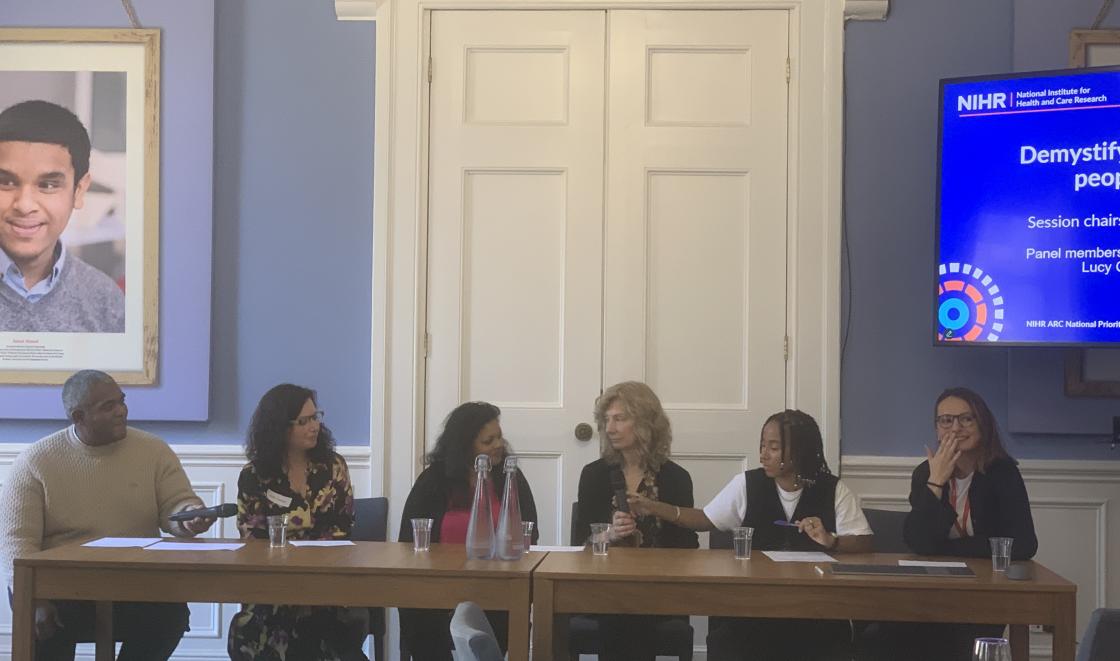Amy: PPI overall has helped to ensure that MHIN has evolved over the years to be an open and collaborative programme that values lived experience.
Runa: For me, it is about filling those gaps where people like my parents - who were invisible in so many systems - would have been missed.
Michele: I think that PPI has helped to bring an alternative perspective that can sometimes get lost in wider research teams.
Joyce: PPI in MHIN has brought a lived-experience reality and focus to the projects.
Jason: PPI has been supported to have a seat at the highest level of decision-making across the programme, which has humanised aspects of the work.
Final reflections on the role of PPI in MHIN
The lived experience input on the Advisory Board has played a crucial role in keeping the MHIN programme accountable. Our lived experience members have challenged key decisions, questioning which outputs would have the greatest societal impact and how best to disseminate them to reach the right audiences.
The MHIN selected three interventions to be implemented across different regions in England: improving access to mental services for minority ethnic communities; implementing parent-led CBT in schools to help children with anxiety; and implementing alcohol assertive outreach treatment. Within these individual research projects, the impact of PPI is evident in their results. Patients and public contributors have added a new dimension to the work of study teams, enriching discussions and shaping meaningful outcomes. This was particularly clear during the project dissemination webinars, where each event featured a dedicated PPI segment. These sessions not only highlighted the real-world impact of the interventions, but also showcased contributors’ experiences of working within the projects.
At different sites across the country where selected interventions were being rolled out, this work was made possible thanks to the careful guidance from PPI members. They ensured that each stage of implementing the interventions was carefully tailored to their communities’ needs. So many incredible adaptions have been made along the way.
Within the MHIN team, PPI has been essential in keeping collaboration at the heart of our work. Input from PPI members has ensured that sufficient time was allocated for meaningful engagement, while bringing vital lived experience perspectives to key decisions and outputs.
The world of PPI must continue to champion the voices of patients and carers, ensuring that researchers involve them at every stage and are supported in doing so. When patients are empowered to step into this space, they bring unique perspectives that challenge assumptions and raise critical questions - many of which have been instrumental in shaping decisions in the MHIN. PPI offers a powerful opportunity to challenge existing systems and push for greater inclusivity in mental health care.
PPI has brought a richness and authenticity to the MHIN projects that would not have been possible without it.
Find out more
Read more about the MHIN projects:
